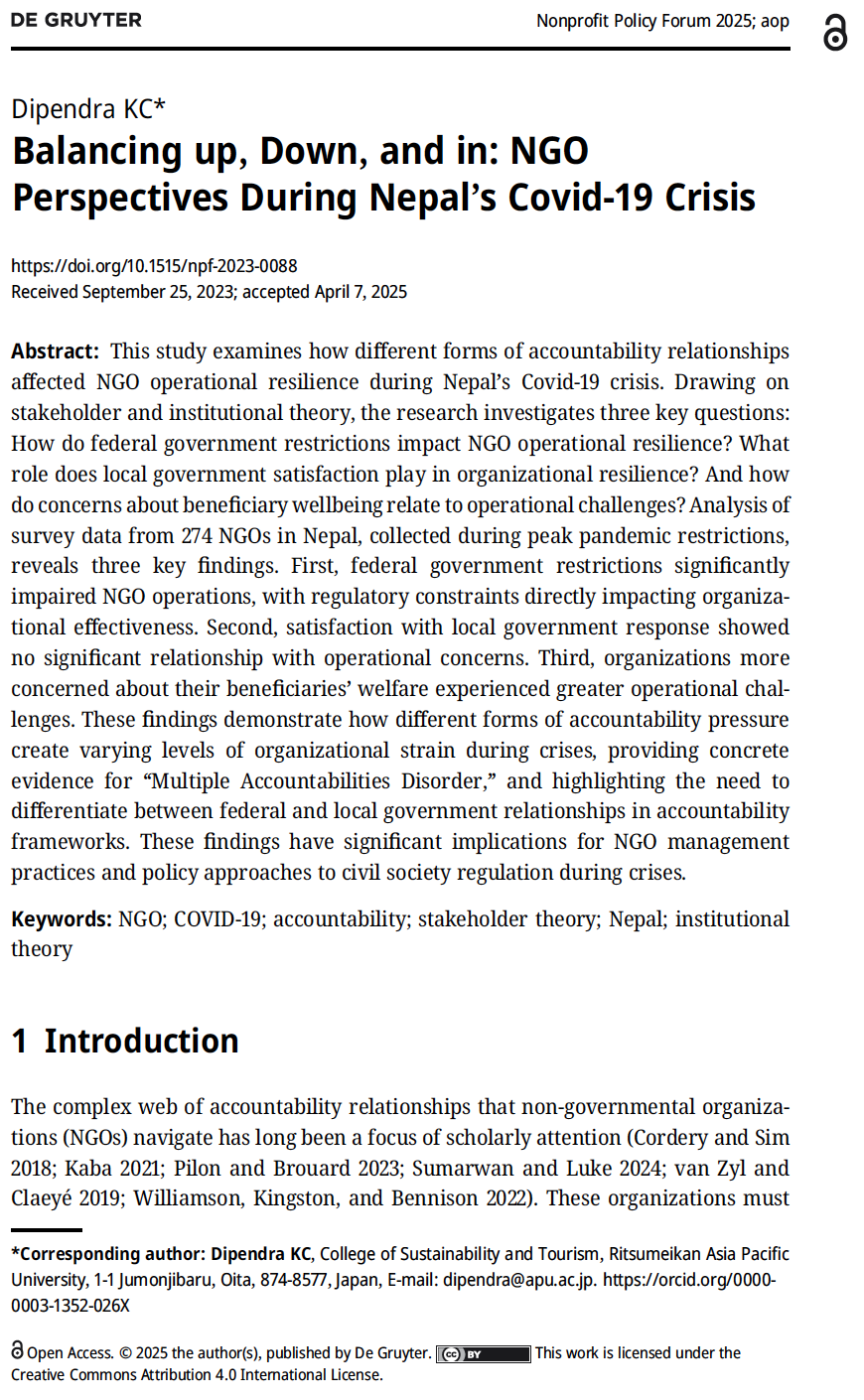Published in Nonprofit Policy Forum, this study explores how varying forms of accountability relationships influenced the operational resilience of NGOs during Nepal’s Covid-19 crisis. Grounded in stakeholder and institutional theory, the research addresses three central questions: the impact of federal government restrictions on NGO operations, the effect of local government satisfaction on organizational resilience, and the relationship between concern for beneficiary wellbeing and operational challenges.
Using survey data from 274 NGOs collected during the height of pandemic-related restrictions, the study uncovered three key findings. First, federal government regulations significantly hindered NGO effectiveness, as compliance demands constrained operational capacity. Second, satisfaction with local government responses showed no meaningful correlation with operational resilience. Third, NGOs that reported higher concern for their beneficiaries’ welfare faced increased operational difficulties.
These results illustrate how distinct forms of accountability—upward to the federal government, lateral to local government, and downward to beneficiaries—exert different levels of strain on organizations during crises. The findings provide empirical support for the concept of “Multiple Accountabilities Disorder” and underscore the importance of distinguishing between types of government relationships within accountability frameworks. The study offers critical insights for NGO management and informs policy approaches to regulating civil society under emergency conditions.
